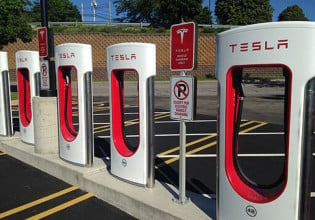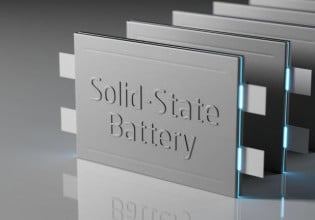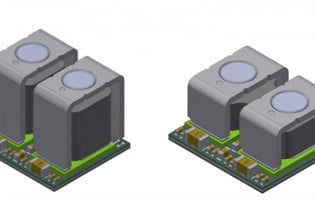Volkswagen Chooses NXP for its MEB Electrical Vehicle Platform
The Modular Electric Vehicle Platform, or MEB, will serve as the basis of entire families of electrified compact Cars, SUVs and Vans
In his Keynote speech delivered at the NXP Connects Developers Conference on Tuesday (Oct. 20, 2020), NXP CEO Kurt Sievers announces a major collaboration with Volkswagen centered on the electronic systems that serve as the central nervous system for all manner of electric vehicles.
Image courtesy of NXP.
VW has chosen NXP’s battery management system (BMS) to manage the critical lithium-ion battery (LiB) power system for its MEB platform, which will play a central role in VW’s migration to its post-hydrocarbon, all-electric future. The MEB will for the foundation for the company’s compacts, its ID.3, the various plug-in and hybrids, as well as luxury EVs such as the ID.4, Audi e-Tron or Porsche Taycan.
The LiB is the lynch-pin for the future of EVs. The LiB has to carefully monitor and control every step of the way, from charging, to delivering power and for storage. VW will depend on NXP’s BMS to serve as the electronic sentinel protecting and enhancing its flexible, innovative MEB platform. It will serve to increase vehicle range, extend battery longevity, and most critically, to enhance safety.
Functions of NXP’s BMS System
It comes down to Safety, Performance, and Multi-Cell Function.
Safety includes protecting the battery from over-voltage or over-current.
Performance depends on factors including safe and fast charging, and the state of the battery’s overall “health”.
NXP’s battery management system (BMS). Image courtesy of NXP
Multi-Cell Function LiBs are composed of a multitude of individual battery cells. Even fresh off the line, all the cells do not function exactly the same, and the differences increase with use. Active electronically controlled cell balancing is a must to ensure that the cells work in harmony, for maximum overall efficacy.
Volkswagen Has High Expectations for its New Modular Electric Vehicle Platform
“As part of the first wave of Volkswagen’s battery electric vehicle initiative, we’ll deliver up to 75 full-electric vehicle models to market by 2029,” said Dr. Holger Manz, Head of Development for Vehicle Energy Supply and High Voltage Systems, Volkswagen AG. “Incorporating a functionally safe battery management system that can scale across many car models makes it easier to achieve the full power potential of a battery, optimized range, and the extension of the battery’s lifetime.”
Two major impediments standing in the way of rapid adaptation of EVs are the dearth of charging stations and the time it takes to charge the battery. VW sees another challenge, what it describes as the core challenge facing the sector today, as the effort to extend the driving range of an EV.
Volkswagen’s MEB chassis. Image courtesy of VM Video
VW is taking on two of those challenges head-on with its ID series of EVs. The new vehicles come equipped with either 45 kWh, 58 kWh or 77 kWh batteries. The 58 kWh version goes a long way towards solving the time-to-charge problem. In quick charge mode with a 100 kW charger, it can be charged up enough for a 260-mile trip, that’s better than Boston to New York, in only 30 minutes. When fully charged, the large 77 kWh system can do a 340-mile trip – that’s just shy of San Francisco to LA.
NXP and the Coming Age of Electrification
“Volkswagen offers its customers rich options for the coming age of electrification,” said Lars Reger, NXP’s CTO. “We are proud to offer precision system-level solutions that scale across models, making it easy to design-in while offering the highest levels of safety.”
Robert Li, vp and GM of Product Line Driver and Energy Systems at NXP said high safety standards come with the goal of constantly improving the range of charge.
“Next to improving the battery pack, the energy density, and power density, the operations have to remain safe, reliable, and accurate,” Li said.
VW is Not Going it Alone
As of this writing, NXP reports that “16 of the leading Top 20 car makers” have opted to employ NXP electronic systems as their battery management solution provider.









